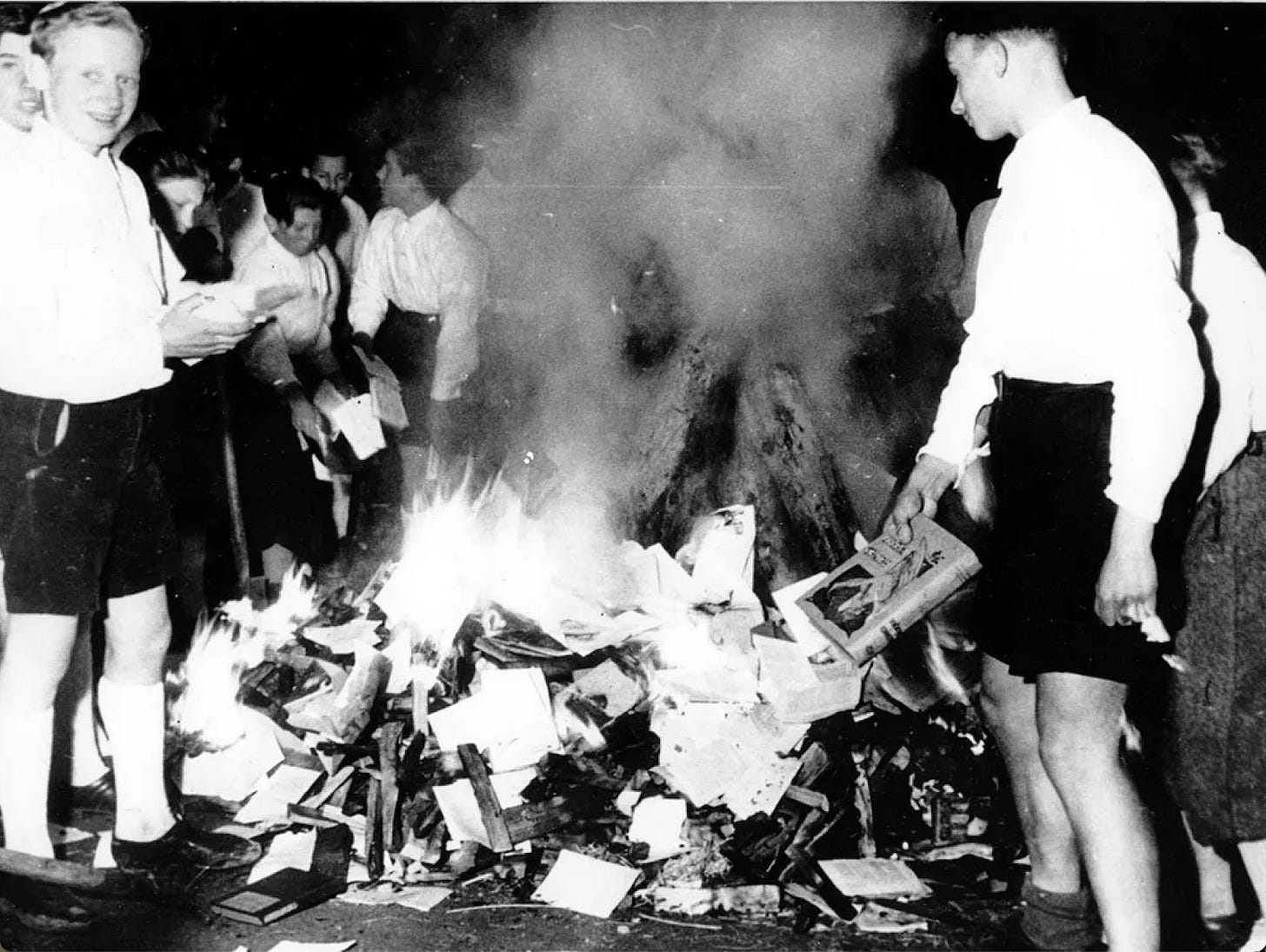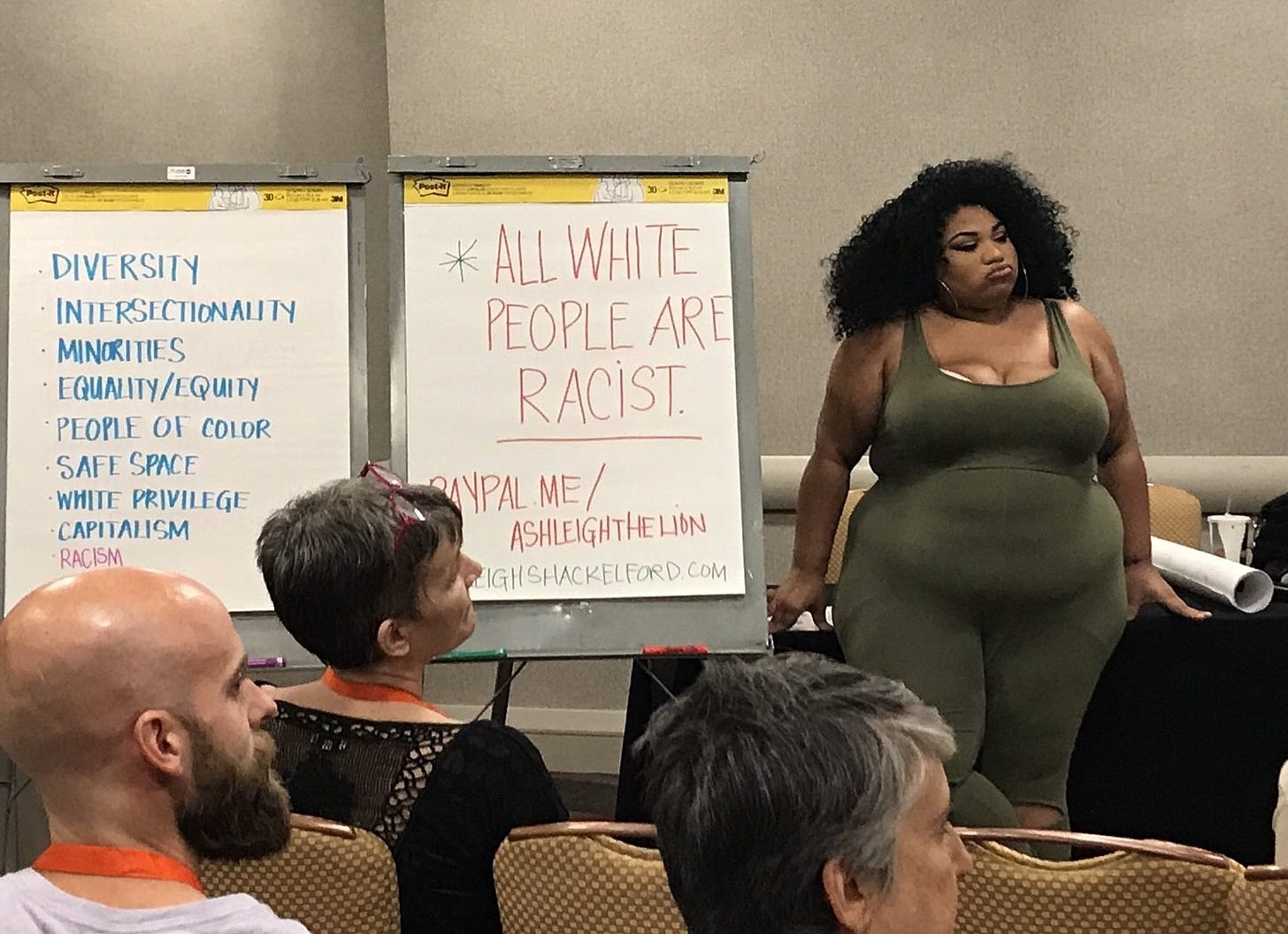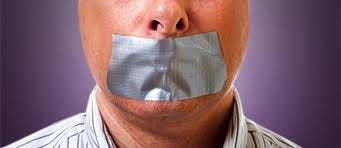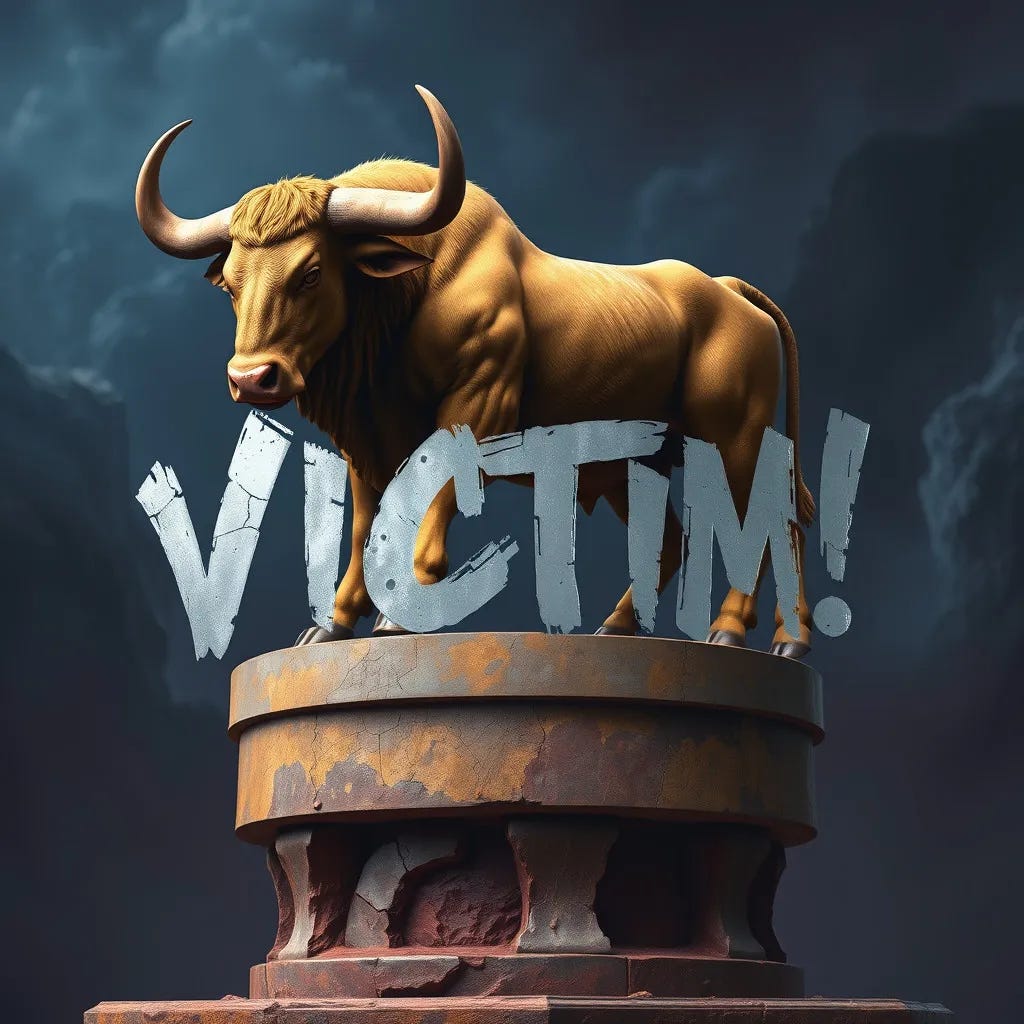The last four years were the most repressive of my lifetime
Reflections from an elite college campus
This is a guest post by Jake Mackey, a professor of classics at a liberal arts college in California and co-founder of Free Black Thought. He has two prior guest posts here: Living by virtuous lies: On the "racism" of the SAT and White Doctors Kill Black Babies: Dubious Science and Anti-Racist Medicine (co-authored with David Gilbert).

Jake Mackey
I am 53 years old. The last four years amount to the most repressive, totalitarian era I've ever lived through.
Noam Dworman, host of the Comedy Cellar Podcast, put it this way:
If—
“the general atmosphere of fear that we lived through as people who want to speak and live our lives freely—if all that change in American society had the fingerprints on it of a particular leader, that leader would be a fascist. If any leader had brought that change into our lives, that would be the most fascist experience with a leader we have ever seen in this country.”
But the author of all this change was not a particular leader. It was the left.
It was a society-wide culture of left-authoritarian intolerance, not a fascist leader, that made me watch my words like a hawk in my classroom for half a decade.
It was fear of retaliation from the left, not from a fascist leader, that caused me to lay awake at night on more occasions than I can count, terrified that a student might have misinterpreted something I said in class and initiated a cancelation campaign against me.
It was not a fascist leader but fear of intolerant leftists among my colleagues that made me censor myself, as a yet-untenured faculty member, when I was asked to report on my findings about the efficacy—which is nil or worse—of diversity training. It was fear of my leftist colleagues that made me bite my tongue and not speak out when I was asked to sign a statement containing a defamatory lie about a student who had in fact made hateful comments about Asians in a private text message, but had not, as we were asked to affirm with our signatures, threatened violence. (I did not sign, but shamefully I did not defend this vulnerable 19-year-old against faculty lies.)
It was not a fascist leader but fear of a pile-on from the left that compelled a colleague and me to humble ourselves before 18-year-olds with a public apology when a small group of students held our jointly taught class hostage for 30 minutes, tearfully accusing us of traumatizing them by showing a brief scene from a film about war, The Thin Red Line, in order to illustrate a point that St. Augustine makes in his Confessions about the evil in the human heart.
We later learned that the majority of the students had disagreed with their peers’ performative accusation of “harm” and had resented their hijacking of the class with transparently nonsensical accusations. However, the sensible majority of students were as terrified of their peers as we were, and of their peers’ capacity to destroy them for even imaginary infractions, and so they had held their tongues as the grotesque event unfolded. (Worth noting here: I think the vast majority of students, and faculty and administrators, too, are reasonable people who were intimidated into silence by socially distributed authoritarianism, just as I was, over the past years. More on this dynamic below.)
Nor were my colleague and I unique among faculty on my campus. No, it was not a fascist leader but fear of attack from the grassroots left that generated countless whispers among faculty in the halls of my college and others. Professors were afraid to tell any but their most trusted colleagues about how students had stood up in class to denounce them for ideological apostasy or to accuse them of "traumatizing" or "harming" them by teaching basic scientific facts. Professors were afraid to show a “triggering” image, or to fail to teach a given subject from the now-mandatory ideological perspective of Afropessimism. Professors were afraid to teach historical or literary material, unobjectionable until seemingly just the week before, that was now deemed inherently "white supremacist."
It was not a fascist leader but a merciless socially distributed grassroots left-authoritarianism that led a senior administrator, a black man, to remark to a small group of us whom he trusted—
“I live in fear that if I say one wrong word, it will be the end of a 30-year career. I worry that I can’t protect my staff if any of them says one wrong word.”
It was not a fascist leader but a leftwing culture of retribution enacted by 18-year-olds—before which a department chair, tenured faculty, and college administrators cowered and averted their eyes—that ended the career of a colleague of mine because she read out loud the name of a character in an antiracist comic book. Yes, it was a classroom of first-year students—acting with the tacit complicity of an entire college staffed by cowards (whose cowardice was nonetheless rational)—that ended her career for reading a name in a comic book whose entire lesson centered on the evils of racism. They denounced her as a white supremacist in a way that her fledgling career as a professor, which had begun only one semester before, could never recover from.
Off campus, I know an artist whose career and business a left-authoritarian mob, not a fascist leader, attempted to destroy because he did not post a black square, signaling solidarity with BLM, on his company’s social media in 2020.
I know a musician who lost his band and music career merely for revealing that he was reading a book that had been effectively "banned" by a censorious left. His experience of repressive, totalitarian retribution came not from a fascist leader, but from a faceless, intolerant mob.
It was not a fascist leader but fear of a cancelation campaign from the left—as well as fear that many of my colleagues and college administrators would tacitly endorse the campaign out of their own fear of defending me—that led me to issue a groveling apology to a small group of students and faculty for bringing this same musician to my campus, along with Daryl Davis, a musician and anti-Klan activist who has done more to combat the most virulent forms of antiblack racism in America than perhaps anyone since the Civil Rights era, as part of a Foundation Against Intolerance and Racism (FAIR) panel discussion.

The two musicians got into a spirited but friendly disagreement about the value of BLM’s approach during the FAIR panel discussion. Afterwards, I heard from a senior colleague that some students and faculty who had been peripherally involved with bringing the panel to campus were mortified that their names might be associated with an event in which someone had said something critical of BLM, and that I would do well to issue an apology. Perhaps these students and faculty really could not countenance hearing criticism of BLM. More likely, I suspect, they were motivated by the same terror of cancelation and ostracism that I was. If their peers learned that they had had anything to do with a panel on which BLM was criticized by one of the speakers, they could face social or professional death on our small campus.
I have read of accomplished leaders in the world of arts and literature who lost their positions not because they criticized BLM but because the statement of solidarity with BLM that they published was not strident enough. I have read (and written) of physicians who lost important positions, were subjected to star chamber proceedings, and whose words were scrubbed from the internet merely for suggesting that socioeconomic conditions and not the unscientific construct of "implicit bias" were responsible for racial health disparities.
I have read of a liberal, gay Canadian educator, who had served children selflessly for decades, who was quite plausibly driven to suicide after being derided as a racist in front of an audience of 200 of his peers by a DEI trainer in a COVID-era “diversity” Zoom call.
And I could go on. And on. And on. And on. And on. And I still wouldn’t have broached the repressiveness of our response to COVID, in which the government was involved, occasionally recruiting private citizens as instruments of repression!
Socially Distributed Authoritarianism: No Fascist Leader Needed
None of this repressiveness, this authoritarian intolerance, this insistence that only a single view was acceptable on pain of professional and social destruction—along with the fear that it all generated—was imposed by a fascist leader. No, it was imposed through the distributed channels of a small number of individual agents converging on an ideology that the vast majority of Americans found absurd, and on a set of repressive practices to enforce it on an unwilling populace. It was also imposed—and this is crucial—by the vast majority of individuals and institutions whose rationally self-interested fear of being subjected to these repressive practices made them turn their eyes away, allowing it to happen to those around them and tacitly endorsing it.
And I cannot but include myself in this indictment. So many of us, myself included, behaved like latter-day Peters, thrice denying the Jesuses of our colleagues, friends, and family in order to save our own skins by falsifying all our most dearly held preferences. My own cowardly failure, before 2022, when at last I got tenure and achieved a measure of security, to come to the aid of friends who were being unfairly scapegoated and professionally destroyed will forever be a source of shame for me.
John Stuart Mill, in his 1859 treatise On Liberty, noted that in cases such as I have described here, “society is itself the tyrant—society collectively over the separate individuals who compose it.” A collective tyrant of this sort—
practises a social tyranny more formidable than many kinds of political oppression, since, though not usually upheld by such extreme penalties, it leaves fewer means of escape, penetrating much more deeply into the details of life, and enslaving the soul itself.
The risk of lapsing into a “social tyranny,” Mill believed, warranted a kind of prophylaxis that even measures like the First Amendment cannot provide—
Protection…against the tyranny of the magistrate is not enough: there needs protection also against the tyranny of the prevailing opinion and feeling; against the tendency of society to impose, by other means than civil penalties, its own ideas and practices as rules of conduct on those who dissent from them; to fetter the development, and, if possible, prevent the formation, of any individuality not in harmony with its ways, and compel all characters to fashion themselves upon the model of its own.
The Tyranny of the Minority and the Spiral of Silence
Mill, it must be noted, is describing here a “tyranny of the majority,” whereas the “woke” social tyranny we have lately lived through and of which we are perhaps now breaking free may better be seen as a “tyranny of the minority.”
The economist Glenn Loury—writing in the Journal of Free Black Thought, the periodical of an organization some friends and I founded in 2020 to fight burgeoning woke racism and the tacit suppression in our public discourse of black viewpoint diversity—describes how a minority can exert tyrannical power over a majority:
German political scientist Elisabeth Noelle-Neumann coined a term that describes this phenomenon: the “Spiral of Silence.” In a spiral of silence, when holding a certain view entails a stigma, then, for fear of being seen as having that view, most people stay silent. Thus, the masses believe they are alone or in a small minority of people with the stigmatized view, when in fact they are indeed in the majority, one of the masses.
In progressive-controlled areas of our society today, we are suffering from a spiral of silence…. [...] Though overt censorship is often spoken of as the leading threat to open discourse, the more subtle threat arises from the voluntary limitation of one’s own speech that creates a spiral of silence.
The spiral of silence, with its “voluntary limitation of one’s own speech,” is the dynamic by means of which a “woke” tiny minority (estimated to constitute a mere 8% of the population) succeeded in enforcing the social tyranny of the past few years.
Crucially, for the majority of us to have stayed silent all this time, we had to submit ourselves to self-surveillance and self-censorship. The terrorizing spectacle of sudden, arbitrary cancelations, played out on the internet and on campuses, served a panopticon-like function, assuring us that we are always being watched, always subject to discipline. As Foucault wrote in Discipline and Punish, “He who is subjected to a field of visibility, and who knows it”—
assumes responsibility for the constraints of power; he makes them play spontaneously upon himself; he inscribes in himself the power relation in which he simultaneously plays both roles; he becomes the principle of his own subjection. By this very fact, the external power may throw off its physical weight; it tends to the non-corporal; and, the more it approaches this limit, the more constant, profound and permanent are its effects: it is a perpetual victory that avoids any physical confrontation and which is always decided in advance.
Over the last few years, there was no need for a state apparatus of totalitarian control. Instead, each of us internalized the constraints on our speech and behavior that the “woke” wished to impose. Knowing that our own social media posts and others’ smartphone video recordings of us were always being uploaded to the “non-corporal” cloud, and in fear of personal and professional destruction, we self-monitored and self-regulated ourselves into a spiral of silence that left only extreme voices free to fill the void, until it came to seem like those were the only voices that had ever sounded.
Now, I would be remiss if I did not acknowledge that there was an entire class of people who genuinely never entered a spiral of silence, who never felt the need to falsify their preferences, who never experienced so much as a moment of fear of their neighbors, students, colleagues, or acquaintances, who sincerely never were discomfited by episodes of mob-led retribution and cancelation such as I've described here. My theory is that (1) some of these were people who worked and lived in places and occupations blessedly removed from the haunts of the knowledge-economy elites who spearhead “social justice” persecutions, so they simply didn’t encounter the phenomenon; (2) some of these were people who observed somewhat ruefully what was happening to their friends, colleagues, and neighbors, and felt, with a sigh, that it was unfortunate, but rationalized it as a few eggs getting broken in order to make a beautiful omelet of social justice; and finally (3) some of these were people whose own ideology so effortlessly mirrored that of the dominant social configuration that they simply never experienced a moment of cognitive friction.
This latter group comprises the “woke,” whether narcissistic, sadistic, witch-hunting activists or merely complacent fellow travelers. I would posit that many people in this “woke” group have not, for the most part, antecedently and independently arrived at "woke" ideology on their own. The true fire of conversion and fanaticism burns in only a rare few. Rather, for most wokists, their minds are such as to spontaneously and uncritically conform themselves to whatever virtuous lie we are collectively supposed to believe or endorse in any given week—from abolishing slave-patrol policing in America, to mass graves of Indians in Canada, to human biology having no bearing on a person's sex or gender. This group has been, and appears to remain, in the grip of an ongoing mass delusion.
Moreover, this group is by and large the class of people that I fully expect to tell me in the comments that none of this ever happened or that I have fallen for a right-wing lie. Some of these people will also make a faulty inference from this essay and assume that I am a hardcore right-winger. In a classic case of the whataboutism fallacy, they will ask, Well, what about the Republicans?, and they'll accuse me of carrying water for a right wing that is supposedly far more repressive than any leftist or Democrat could ever aspire to be.

Even more incoherently, some people from this group will say that my supposed experience of intolerance (which they doubt ever really happened) is in any event exactly what a bigot should expect (and therefore it’s good that it happened). If I have views that it was impossible for me to express on campus over the past years, that is just and good, for their very rejection entails that my views must have been beyond the pale, and no campus is obliged to platform or tolerate Nazis and their ilk. On this view, people like those whose destruction I have chronicled here merely met with a social opprobrium that was symmetrical with their sins. Case closed.
These inferences and accusations are, of course, not only false but also logically fallacious, even if—alas—it has not been uncommon to hear them over the past 4 and more years. The simple truth is that I can be angry about left-wing repressiveness and still be plenty alarmed by right-wing repressiveness, as indeed I am. I have spoken out on Twitter/X against Florida's repression of speech, for example, and against the crushing of pro-Palestinian speech on some campuses, and just recently I shared my fear, which I think is not unfounded, that Trump may end up invoking the Insurrection Act.
Be all that as it may, there is simply no equivalency between the impact on my "lived experience" of the daily, grinding paranoia and fear that the leftist culture of repression and bullying has created in me and that I have seen it create in students and colleagues, and my more abstract and theoretical concerns about a repressive right, that is in any event far more distant from me because I am not obliged to go to or work in Florida or Texas. In contrast, the society-wide leftist culture of authoritarian tyranny that I have described here has been more or less ubiquitous.
I’m well aware that “wokeness” and its associated “cancel culture” kicked off in the 2010s and began to get really bad ten years ago, around 2015, but I have spoken here only of my own personal experience, which became untenable shortly before 2020.
Moreover, I am well aware that the excesses of the totalitarian left of the last few years can’t compete with the horrors of Mao’s Cultural Revolution, or Stalinism, or theocratic Islamism (all three of which, by the way, are embraced to one degree or another by the left). Accordingly, I have used “totalitarian” here not in its proper sense, as a system of authoritarian government, but in an extended sense, as a socially enforced leftwing regime of authoritarianism, an attempt by a vocal minority to exert total control over thoughts, speech, and action. The fact that the abuses perpetrated by American leftists against their freedom-loving fellow citizens over the last few years were not acts of a totalitarian government hardly entails that the era was some sort of picnic, and it is telling that people who grew up in totalitarian regimes have seen echoes of what they escaped in the “woke” regime.
Feel free to deny my account of the last 4 years, but I refuse to be gaslit about what I have experienced and seen.
I close with a parting shot from Nevline Nnaji, whose work we have shared and promoted in the Journal of Free Black Thought:













No sooner was this post published than, as I predicted in the post itself, the comment section began to fill with deniers, intent on claiming that none of what I describe happened or that I'm a snowflake for caring that people around me were losing their livelihoods and being unpersoned for literally nothing.
So, as a kind of Guide of the Perplexed (if you will), I'd like to head off any further confusion and foolishness with this statement:
—I'm one of the 27% of faculty in a new FIRE poll who feel unable to speak freely for fear of how students, administrators, or other faculty might respond.
—I'm one of the 40% of faculty who worry that my reputation may be damaged if someone misunderstands something I say or do.
—I'm one of the 23% of faculty who worries about losing his job over a misunderstanding of what he's said or done.
—I'm one of the 35% of faculty who's tempted to tone down his writing for fear of controversy.
—I'm one of 35% of politically moderate faculty who at least occasionally hide their political beliefs from other faculty in an attempt to keep their jobs.
—I'm one of the 27% – 28% of faculty who frequently self-censor in conversations with other faculty, admin, and students.
And so on, on and on, on topic after topic.
All of these facts and figures are right here, in a poll of 6,269 faculty at 55 institutions, whose results appeared just a few days ago:
https://www.thefire.org/facultyreport
As I said in my piece, don't fucking gaslight me.
I have started deleted comments and am prepared to continue doing so. I might also ban particular individuals who keep it up. What "it"?, you ask.
1. Personal insults. Calling people names like something out of a middle school yard. To be distinguished from criticizing or even derogating, their actual comments.
2. Irrelevance. If you have pet issues you'd like to grandstand about that have nothing to do with Jake's post, go for it! Elsewhere. If you do it here, I'll take it down.
There are definitely grey areas requiring judgment calls. I will be making those judgment calls. There may also sometimes be exceptions. I will make those judgment calls, too. You do not need to like or agree with my judgment. I strongly recommend that you bag the insults, stay relevant, and try to minimize snark.